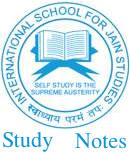
Preface
Sallekhanā is a very important topic in Jaina philosophy. It is very important to understand this issue. It is an important path to positively change our life. It is a very minute topic and hence one has to be cautious about it. But presently many of them fail to understand it properly and talk ill of it. Scriptures mention clearly, “Niṣpratīkāre”; means one has work for daily living, live properly, but when life becomes irritating and worthless, death becomes inevitable, at that time abandon the attachment to the body; this is Sallekhanā.
Ācārya Samantabhadra in his Ratnakaraṅdaśrāvakācāra (Sloka No: 122) shows that this typ of death is necessary:
upasarge durbhikṣe, jarasi rujāyan ca nihi pratīkāre\\
dharmāya tanuvimocanamāhu sallekhanāmāryāhā.\\Over and above he further mentions, “Sakaladarshinha stuvate”, which means all the philosophies of the world appreciate Sallekhanā. There is no philosophy in the world, which does not like Sallekhanā. From an ant till a mighty emperor all like to die peacefully.
Mahākavi Kālidāsa also has written that in ancient times all the people from good families would prefer to die in Samādhi.
Śaiśaveabhastavidhyana yauvane viṣayeṣinām \
Vārdhakye Munivrttīna yogenāntena tanujyamThere are four main events in the life of humans: Birth, Marriage, Initiation, and Death. All these are rarely available. First is available to all, second is a little more difficult, third is got after lot of good deeds done and the last one is very rarely achieved and a very auspicious one gets it, but life is fully achieved on death is an auspicious one. The way one takes a bullet on his chest in the battlefield is known as a martyr, similarly one who leaves the body during auspicious meditation is known as Samādhimaraṇa.
Tattvārtha Sūtra mentions that death is also an obligation and it also should be auspicious.
 Acharya Vidhyanand
Acharya Vidhyanand